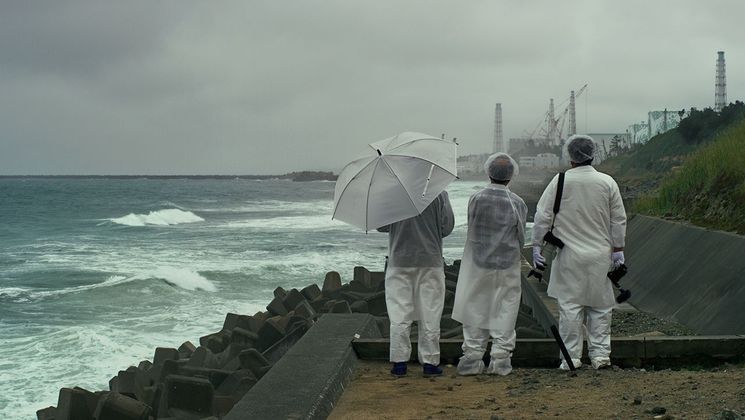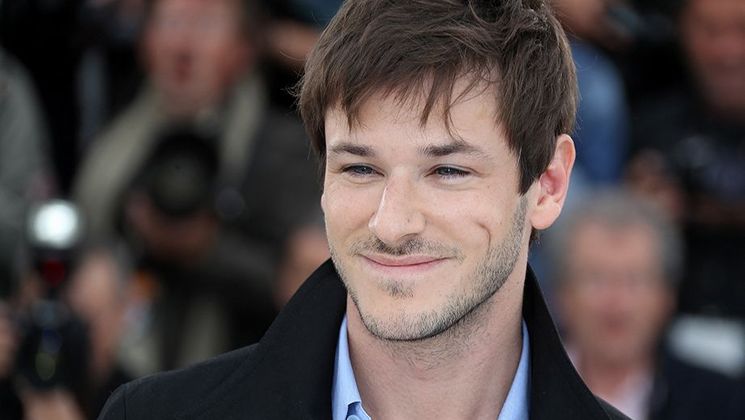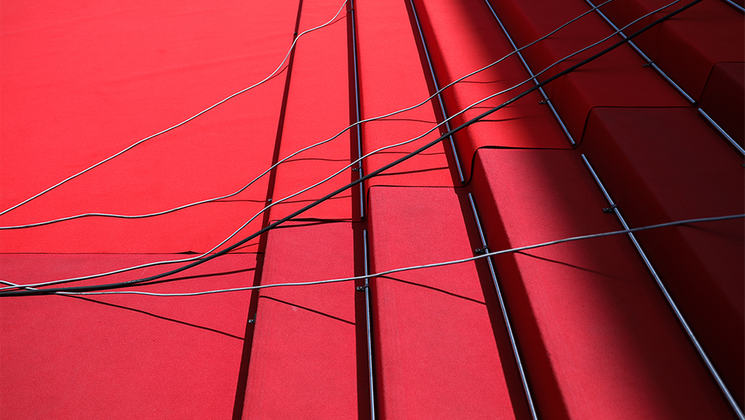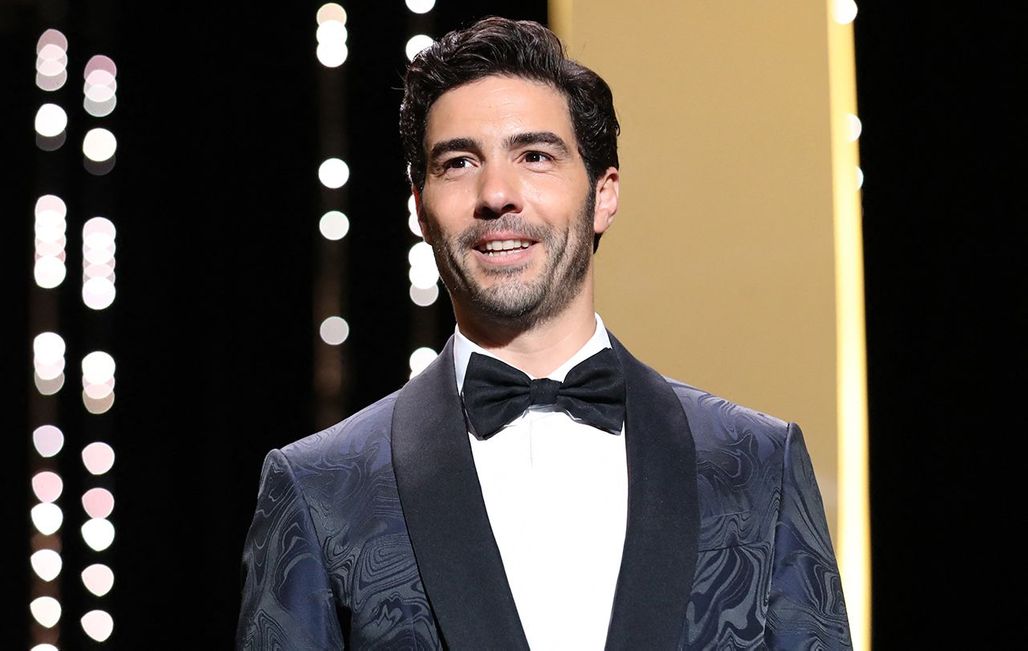
Interview with Tahar Rahim, member of the Feature Film Jury

His talent and choice of films have made Tahar Rahim a star, in demand among filmmakers in Europe, America, and Asia. Ever since his performance in A Prophet (Un Prophète) by Jacques Audiard, winner of the Cannes Grand Prix in 2009, the French actor has carefully curated the roles he takes on, and continues to stay open to a range of different genres. Now with us here as a member of the Jury, he will be in cinemas soon starring in Serge Bozon's musical Don Juan.
What do you remember of your arrival in Cannes in 2009?
I have strong memories of walking up the stairs, I was the only one who felt overwhelmed. The steps seemed as epic as a temple's. The day before, I had been strolling down the Croisette, just another guy in the crowd, and coming out of the screening, I walked home and was stopped by people all along the way. It's a striking memory, it's a nice memory. It shows the extent to which the Festival de Cannes can change your life as an artist, in a mere two and a half hours.
What has being a member of the Festival's Jury taught you?
It's just like going to the cinema in Paris, except I'm with film lovers who know the industry inside-out. What's interesting is the discussions you have when you come out, nine different takes, perspectives, and experiences. It's like a practical class at a film school. Through our conversations, we come to see a film differently. Alone, you can sometimes get stuck in a mindset, or in thought processes that aren't your own.
What was your relationship with the cinema as a boy?
When I was young, going to the cinema was a big day out. I come from a working-class neighbourhood and a big family. We lived in Belfort. As a child in the 1980s, I saw The Goonies, Stand By Me, all those films that made an impression on me. Bruce Lee, Jean-Claude Van Damme too. My most powerful experience of the cinema wasn't actually in a cinema. Our English teacher used to show us films, and one day, he made us watch The Night of the Hunter. Usually when you're twelve, black-and-white movies don't quite do it for you. But this one was different. It was so beautiful, almost like a fairy-tale. Then you had your TV films, too. I really liked Belmondo. I remember crying when he dies in The Professional (Le Professionnel) because I thought he was really dead. Tears were rolling down my face, and my mother came to comfort me: "He's not really dead, it's a film". My mother was the one who taught me that cinema is the art of falsehood.
What made you want to become an actor?
The cinema itself. I like cinemas as spaces, I feel good in them, almost outside of time. The sound quality isn't the same, it comes from the screen itself. The sound of someone opening a bag of popcorn, the plushness of the seats, the room temperature. I went so often that I absorbed the films, and I increasingly felt the urge to inhabit them. This drive became a need, and then when I was seventeen, a friend showed me Taxi Driver, which was when I discovered new Hollywood. I fell head over heels for the genre, because I could identify with them, whereas I didn't recognise myself in the French films. In these films, I saw people who could have been my neighbours. Their complex lives and social class spoke to me. It was a powerful sense of falling in love, and that inspired me to become an actor.
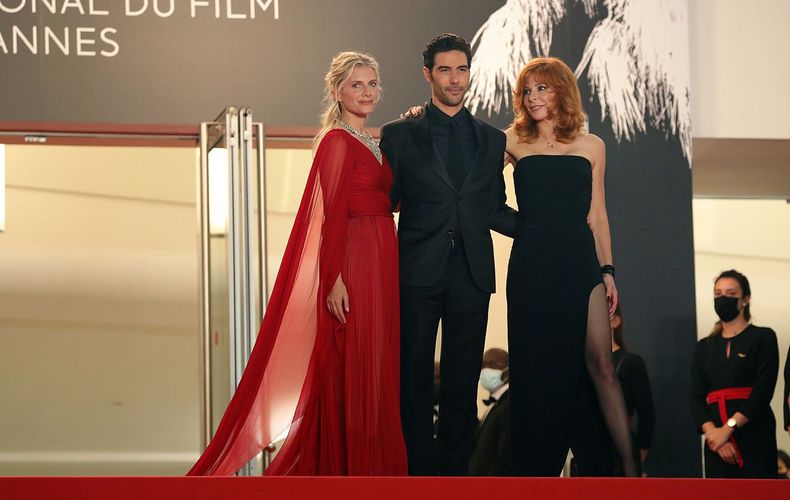
Mélanie Laurent, Tahar Rahim and Mylène Farmer - Members of the Feature Film Jury © Vittorio Zunino Celotto / Getty Images
Man or actor – which aspect of yourself inspires which?
I used to only draw on my own personal experience. I found it difficult to tap into the characters, I preferred to draw it back to myself. I became a father, and that fed into becoming an actor, for example. It opened up emotional chakras I didn't know I had. Likewise, some characters end up enriching you as a person. The character of Mohamedou Ould Slahi, who I play in The Mauritanian fed back into me as a man, and on a deep level, too: his take on life, his grandeur, the strength in his apology, everything I had been unable to grasp when I was younger came to life through him. It feels as if he saved me eight years of learning.
Following on from The Mauritanian, the next time we see you, you'll be singing your heart out in Don Juan by Serge Bozon. How do you prepare for this kind of role?
I approached it as if it were a sports challenge in which I knew I could fail. Having to sing thrilled me, and I had to practice a lot. For some people, singing comes naturally, but that wasn't the case for me at all. I spent two months training. Three times a week, I had classes with composers and a singing teacher to hone my technique.
Do you have an urge to explore a particular genre next?
I'd love to do a western. I'd been saying I wanted to do a musical for a few years. But now, I would absolutely love to do a western.
